|
Early detection of Alzheimer's, but is it worth knowing that you will develop this disease? Alzheimer's disease is a terrible condition. In so many ways the person affected dies in almost every sense of the word but their earthly body will still be alive and may even be in fairly good health. It must be awful to be married for say forty years and then your partner develop Alzheimer's. In either a short or long period of time the affected person will lose short term memory and may become like a stranger to their partner and family. Some patients become aggressive and, ultimately, most will need long term care. How sad and what a dreadful prospect for many of us Recently, there have been press reports about recent discoveries regarding the early diagnosis of Alzheimer's. Our first reaction was why would you want to know, perhaps twenty years before it happened, that you were going to get Alzheimer's as you age. If you give the matter more thought though it is not as simple as that. Life never is, is it?.................... A simple eye test used to detect early signs of Alzheimer's Within the next few years it seems that a simple eye test, to detect Alzheimer's, will be available through Opticians. It is as simple as identifying dying cells. This is done by examining the eye, after a harmless fluorescent dye has been introduced. Examining these cells, on the Retina of the eye, will be non-invasive and routine. In the past Doctors have found it difficult to follow any Alzheimer's changes to a patients brain. As the disease develops the brain shrinks and cells die. Observing the changes in each cell, on the Retina, may provide the information necessary to make a correct and early diagnosis of Alzheimer's. Blood pressure medication reducing the risk of Alzheimer's Recent research seems to indicate that patients who take angiotensin receptor blockers, ARBs, in order to control their blood pressure, may have a lower risk of developing Alzheimer's. It appears that this medication may prevent blood vessel damage in the brain, which could contribute to Alzheimer's. Trials are ongoing Readers will need to exercise caution when they read this report. Research is ongoing and nothing is conclusive yet. However, early indications look positive. So would you want to know if you were likely to develop Alzheimer's? What would you do if you were given such a prognosis? Initially most people may feel that they would not want to know, but think about it:
It is not time yet but, in the near future, you may be given the opportunity to be screened for the early signs of Alzheimer's. How will you feel? Will you want to know? What will you do with the information you have been given? Of course if Governments simply screen, without revealing the results to the individuals concerned, it will be pointless. They could do this in order to assess the levels of care that will be needed in the future and for research purposes. It is to be hoped that this new test is not used for such purposes, though. The quick and easy test, if it works, could offer so many people a last chance at life. Well life as they know and love it. Well? Would you want to know that you will probably develop Alzheimer's? Note: Originally reported in 2012 this link dates to Summer 2016 "The retina is made from similar kinds of tissue as the brain and that tissue can be seen directly by looking into the eye. ... According to the Alzheimer's Association, the disease is caused by the buildup of amyloid plaques and tangles in the nerve cells in the brain. Aug 8, 2016"
0 Comments
How to tell if a person has suffered a stroke
Introduction A stroke can leave the sufferer with more than one disability for the rest of their life, or even kill them fairly instantly. When I was 19 my Mum, who was aged just 55, suffered a severe stroke. Through her Doctor's incompetence she did not receive treatment until her health was so damaged that she was left semi-paralysed, unable to utter but a few words. After three years, which saw my poor Mum suffer more than anyone really should, she passed away, fighting until the end. With age and experience I have learned not to just accept a Doctor's blase diagnosis down a telephone line. If you think that someone may have suffered a stroke get help and get it fast. Ring an ambulance by calling 911 in the USA, and 999 in the UK REMEMBER - The quicker you act, the more of the person you will save, and I know all too well how true that is. For me, the advice is very personal. It could have made my Mum's prognosis so very different. I hope I never suffer a stroke but, as my Mum's sister and their Mother, suffered the same fate, who knows. Looking after yourself can improve your chances but of course genetics play a part. When a person suffers a stroke time is of the essence. Quickly detecting a stroke and getting the appropriate treatment is vital. The speed of receiving treatment will have a marked effect on the outcome. So to repeat and stress:- The quicker the stroke is diagnosed, the more of the person that can be saved In recent years the UK has seen a huge television advertising campaign, aimed at helping people recognise the signs and symptoms of a stroke. These adverts have tried to make sure that each and everyone one of us remembers the slogan, associates it with the signs and symptoms of a stroke, and quickly gets help when necessary. The slogan is F.A.S.T and so these letters will be the 1-2-3-4 of this simple guide. F - Step 1
Additional symptoms could also be:-
These symptoms could also be a sign that the person has had a mini-stroke or TIA. Some of the Stroke risk factors.
Finally As usual this simple how to guide ended up rather longer than anticipated. However the one message we hope to get across is F.A.S.T. Please remember to check for the symptoms if necessary, as young and old can unfortunately suffer a stroke. You could save some-one's life or perhaps someone may save YOURS. Men don't make passes at girls who wear glasses. What a sexist and out-dated statement that is. Spectacles can be so stylish these days that people opt to wear them simply as a fashion statement. If you do need glasses to correct a sight problem you may find there is just too much choice although in truth there are probably only a handful of basic shapes and types. But what if you need two pairs of specs one for close vision and one for long distance? Varifocal spectacles or glasses have lenses that have a gradual change in strength. Unlike Bi-Focals, where the lens has two distinct halves the varifocal lens gradually changes. When such glasses are properly prescribed, they will correct problems with long distance, near-sighted and arms length viewing, without the need for separate pairs of glasses. Gone are the days when you would have put on your reading glasses to read, and then would need to swap to your distance glasses when you were going out. A pair of varifocal glasses will fulfil all of these functions for you. What are the benefits of wearing varifocal spectacles as opposed to spectacles with ordinary lenses? There are many benefits to wearing varifocal spectacles if your vision is poor in both close and in distance viewing. The benefits can be:-
They are also much more convenient to use than two such pairs of glasses. The alternative often means having an alternate pair of glasses hanging around your neck say for use with the computer. Instead if you are wearing a pair of varifocal spectacles all you will need to do is move your head a little. The alternative can also mean remembering to take both pair of specs with you when you go out, go to work or go on holiday. Are varifocals for me? If your eyesight test has shown that you need both reading spectacles and distance ones then varifocals may work for you. However not everyone finds them easy to use. It can take time to adjust to wearing varifocals but in some cases it never works out. Your optician will ensure that you have your field of vision tested first. This will show if varifocals would not work for you at all. Many opticians in the UK offer a 28-day money back guarantee with varificals. This means that if you buy a pair of varifocal glasses and cannot get used to them at all you can take them back. In return you will be able to purchase a pair of readers and distance glasses instead. Make sure you check if this is available at your opticians before you commit to buy. How do you use varifocals? The lenses graduate down from the top. The top part of the lens is used to look into the distance. The bottom part is used for close work. This is why it is important that you are measured properly for such glasses. You can buy on-line but make sure that it is a reputable dealer who carries out your instructions to the letter. A reputable High Street optician service may be best for your very first pair of varifocals. Varifocal lenses are much better these days but there is still a knack to wearing and using them properly You need to get used to angling and moving your head a little more. When you are going to cross a road turn your head right and left rather than just looking to the right or left. If you just look toward the edge of your glasses you may find that the view is a little blurred. When you use a computer it is important that the chair is at the right height for you and the screen is angled for optimum use. You must avoid having to tilt your head up so that you can view through the bottom of your varifocals, as this can give you neck problems. To bring a book into your field of vision it is best to bring it close under your glasses rather than up in front of you. Personal experience and problems if any I was lucky on the whole as I soon adapted to wearing varifocals. Having alternated between two pairs of single lens glasses for a year or so varifocals were great by comparison but they did seem a little strange at first. This was mainly when I wanted to look to the right or left. After wearing varifocals for a short time this was no problem. You may need to persevere with wearing Varifocals When my husband finally needed both reading and distance glasses he opted for varifocals. I knew he would not get on with them but, as I had no problems, he thought they sounded a good ides. Within two days they were returned to the optician and two single lens pairs of glasses bought. The first day he wore his varifocals off we went to the town. I had crossed the road and suddenly realised he was not with me. Looking around there he was marooned on the grassy verge of the dual carriageway looking lost. He then proceeded to attempt to cross over to me looking every inch like a spaceman on the Moon! Of course I could not help but fall about laughing which I guess did not help. Before you purchase varifocals think about your personal needs and conditions. If you suffer from regular migraines, severe headaches or dizzy spells varifocals will probably not be for you. Overall though I cannot recommend varifocal glasses enough Having experienced, even briefly, having a second pair of glasses swinging around my neck, hung on a cord, whilst I chopped and changed which specs I was wearing, I found varifocals to be a marvel. Varifocals in general Varifocals come in all shapes and sizes these days. Your frames will need to have sufficient space though to accommodate your lens properly. If the size is too small it is hard for the optician to make a lens that has the correct graduation. However most modern frames are able to accommodate varifocal lenses. You can opt for reactolite or varifocal transition lenses with an anti-glare. This means that they also go gradually darker in bright conditions, such as sunny weather. The anti-glare improves the glasses performance when using the computer. Varifocal sunglasses are also available. Often opticians will have an offer which includes half price varifocal sunglasses when you purchase a standard pair of varifocals. Check out what is available locally for you. Varifocal contact lenses are also available; Bifocal and multifocal contact lenses work in several different ways, depending on the design of the lens. The designs fall into two basic groups: "Alternating vision" (translating) lenses are so named because your pupil alternates between the two powers, as your gaze shifts upward or downward. Inactivity is reportedly as deadly as smoking?
How does that make you feel? Are you scrambling for excuses such as smoking is not deadly for all smokers? But no matter how you spin inactivity there is no escaping it is not good for you. That is common sense. For a few years we have been hearing how lazy we in the UK are. Perhaps lazy is the wrong word as it is more like how inactive we are. We may work our socks off but hardly move a muscle in this techno, fast pace age. Researchers claim to have discovered that too much inactivity is as bad if not worse for you than smoking. As we all exclaim, "for heavens sake what next?" most of us know that is true. Don't believe it? Well try a little exercise for yourself and enjoy those feel good hormones as they are released. As always it is about the level of exercise. Try to transform from couch potato to exercise freak in one day and you will ache till the cows come home. In order to do more good than harm follow a sensible approach. So how did we in the UK become this sedentary? It is a culmination of many things. In the past children would play in streets and parks but now parents fear for their safety. People in the UK are techno savvy and love gadgets. This means too many of us relax sat at the computer, X Box, IPad or the like. We love kindles and for many the only exercise is the occasional use of a Wii Then of course there is the weather in the UK. It has always been unpredictable but lately it has been dismal. Who wants to walk home from work in torrential rain? The same goes for cycling, although both these methods of movement also can cause safety concerns. Many people in the UK love their cars and choose to use them as much as possible. This can mean that even a short journey is done by car. This is costly and bad for the environment but now we know it is also bad for us. Check out NHS Choices for some sensible advice on exercise and you. Inactivity can cause obesity and health issues such as diabetes and heart problems. A recent study has indicated that currently inactivity in the UK is killing more people than smoking. The report wsa published in the Lancet. It should not be necessary for a government initiative. If we organise our daily activities better we should be able to incorporate some exercise time. You will need to be disciplined and stick to timescales, especially if you use a computer. If you can include a little extra walking, swimming gardening, housework, walking and more, an actual exercise program will be unnecessary. No matter what government initiatives there are it will ultimately boil down to you and your choices. OK, as Baloo says in The Jungle Book, "Get with the beat Baggie." More; https://www.bhf.org.uk/-/media/files/publications/research/bhf_physical-activity-statistics-2015feb.pdf As we age our brain power diminishes. Fact. However the rate at which it diminishes, and just how much it does so, can vary a great deal.
Keeping your brain active helps. Learning new tasks and hobbies will help keep your mind alert. A good balanced diet with plenty of exercise will help keep both your mind and body in tip top shape. Sadly for some though dementia may still be the future. Genetics of course plays a part. The ever increasing elderly population of the western world has shown that living a long life is not always a bonus. The increase in elderly people with dementia is both staggering and frightening. Research is fighting hard to come up with some positive answers and treatments, and the one discovery is quite simple. Vitamin B Vitamin B is not just one vitamin. There are over the counter supplements which offer B Complex, B12 or B6 for example. UK scientists used Vitamin B in research regarding patients with dementia. It was trialed on 168 volunteers and the results said to have been remarkable. All of the volunteers suffered from some form of memory impairment, often seen as the precursor to Dementia and Alzheimer's. In a typical study half of the "human guinea pigs" were treat with nothing more than a placebo. The Vitamin B given contained high doses of the vitamins B folate (B9), B6 and B12. The volunteers taking the Vitamin B suffered much less brain shrinkage and wastage. This treatment seems to work by controlling levels of an amino acid called homocysteine. High blood levels of homocysteine are linked to an increased risk of developing Alzheimer's disease. Simple I guess The research claims to have shown that "Large daily doses of vitamin B can hal the rate of brain shrinkage in elderly people with memory problems and may slow their progression towards dementia". Researcher's now believe that treating people with early signs of memory loss can slow down the onset of Alzheimer's and dementia. Warning: Researchers advise against trying to take such high levels of Vitamin B without medical guidance. The levels are said to be a "drug" rather than a "vitamin". Getting the balance wrong could do more harm than good. Consult your health professional for the best advice. General information: 16 per cent of people aged over 70 worldwide, are said to suffer with the symptoms associated with very early signs of dementia. 37 million people worldwide live with dementia, or with Alzheimer's disease in the majority of cases Some foods will supply a good amount of natural Vitamin B. Our personal opinion is that eating a diet rich in these Vitamins, whilst you are still under the age of 70 could help you stay brain alert. The foods include, eggs, cheese, lamb, beef, crab, lobster, fish, octopus, caviar, liver and mussels. This list is not exhaustive as some foods provide a good source of say Vitamin B6 or Vitamin B12. For a more thorough breakdown of which foods supply which Vitamin B source read on here. Also http://www.onewomansomanyblogs.com/health-matters/how-does-memory-loss-happen http://www.newtekjournalismukworld.com/latest/new-president-of-alzheimers-uk-david-cameron-calls-for-more-funding The ways that age can affect your memory
What is it that they say about "You don't know what you have got till its gone?" See I can't even remember that properly. All joking aside most of us seem to worry about loss of memory at some time or another. It may just be that you are under stress, working too hard, have no relaxation time or is it that you are getting old? Memory loss is more often than not associated with ageing but it can happen at any time. If you start to think of your brain as the hard drive of a computer it is easy to see how efficiency problems can occur. Let's face it, usually we regularly defrag our computers, check for errors and repair the problem deleting unwanted files along the way. This is not so easy with your brain. Here is an example. My Mum died in 1975 but to this day, so many years later I can still remember her old telephone number, no prompting needed. Yet if I change my computer password and take a couple of days vacation my mind is not so willing to retrieve the necessary information. Of course, it could be that I am beginning with some form of dementia but I hope not. Such ageing diseases often leave the sufferer able to recall the far distant past in minor detail but unable to remember what they said two seconds earlier. With age most thinking people's brains are simply too full of sometimes outdated and insignificant information. Our brains' data-banks could do with regular spring cleaning. We need to be able to let go of what is no longer relevant, useful or even valid, in order to make room for fresh, pertinent information. This would also no doubt increase our speed of thought. So in other words the old adage you can never get too much of a good thing, is, in reality, bunkum. Our memory is a great thing when you think about it. Images, happenings, conversations and feelings are all nicely stored away for us to utilise when we want. There are times of course when our memory plays tricks on us. We remember that it was always hot and sunny in summer when we were kids. Of course, the winters always had deep, crisp, white snow and everyone laughed all of the time. So we also have selective memory. However, scratch the surface and painful memories are often not far away. The death of a loved one, an illness, an accident, a frightening experience will still be lurking in your memory but perhaps subconsciously you will choose never to see it. I guess it is a fact of life though that, with age our memories may fail us at least a little? Incorrect hormone balances can also leave us forgetful. Whether it be an endocrine problem or female hormone imbalance, either too few or too many, can certainly lead your memory a merry dance. When we are young, say aged 10, we have lived such a short space of time but of course we do not think that we have. However your experiences by the time your are 20 will be considerably more. What about when you are 40, have raised a family, lost a loved one, trained for a career, followed an education, had children, travelled abroad, fought in a war, survived a disaster and so much more? Now consider what you may have experienced by the time you are 60, 70, 80, 90 and more. Added to this mass of information, your memory like all of your other valuable tools, will be a little rusty. Nothing lasts forever and, with time, everything must age, wear and die. Fact. You can try to eat a sensible diet, keep happy, try to keep your mind active with new experiences and look after yourself but some memory loss in inevitable. Some memories need to be regularly aired in order to keep them fresh and accurate. If you have a large family and meet regularly you may reminisce about when you were young. This joint sharing of past experiences helps to keep the memory alive. Once you have no siblings and the like to remember with, these distant memories will dim even more. When you consider just what a huge library your memory is, there's no wonder really, is there, that at times we are all forgetful? However sometimes there are medical reasons for poor mmeory. Check out five causes here. More; http://www.webmd.com/brain/memory-loss https://www.nia.nih.gov/alzheimers/publication/understanding-memory-loss/serious-memory-problems-causes-and-treatments |
Archives
March 2020
Categories
All
|

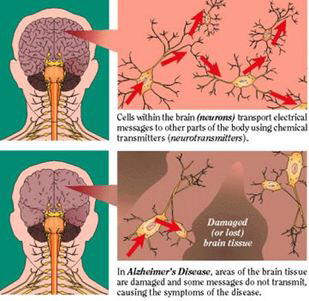


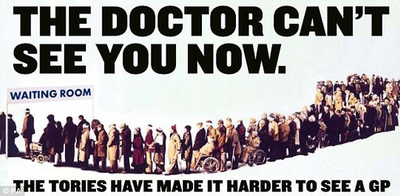
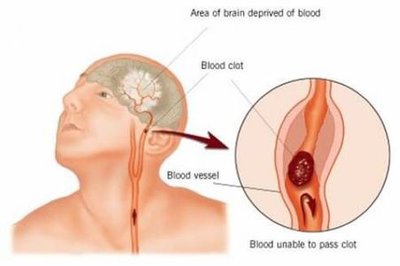
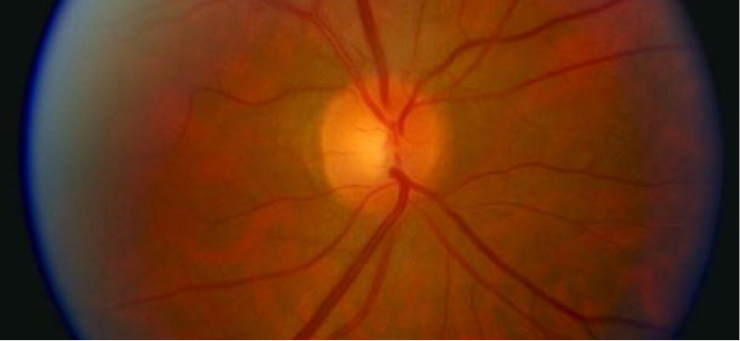
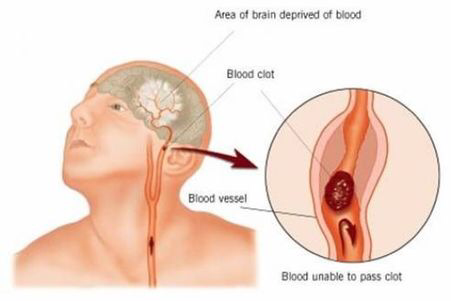
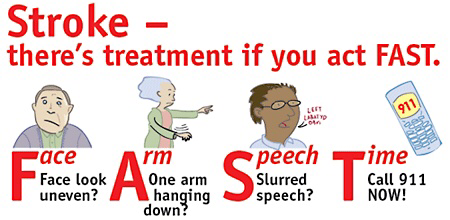



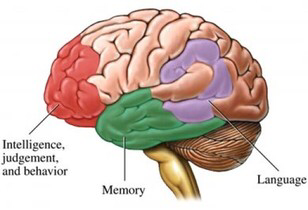
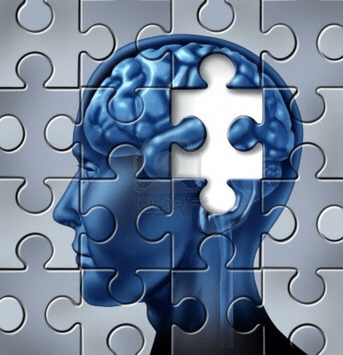
 RSS Feed
RSS Feed




